
Hampi: The Ancient Ruins of a Glorious Past
Hampi, located in the southern part of India, is a UNESCO World Heritage Site. It was once the capital of the Vijayanagara Empire and is known for its rich history, stunning architecture, and breathtaking landscapes. The ruins of Hampi are spread across a vast area. Visitors can explore ancient temples, royal pavilions, bustling market streets, and other relics of a bygone era. Each monument tells a story, offering a glimpse into the grandeur of the past. One of the highlights is the Virupaksha Temple, which is still an active religious site and a marvel of Dravidian architecture. The stone chariot at the Vittala Temple complex is another iconic symbol of Hampi's architectural brilliance. Apart from the historical sites, Hampi is surrounded by boulder-strewn hills and lush paddy fields, making it a paradise for nature lovers and photographers. The Tungabhadra River flows through the town, adding to its scenic beauty. Tourists can enjoy coracle rides on the river or simply relax by its banks, taking in the serene surroundings. Hampi also offers opportunities for rock climbing and trekking, catering to the more adventurous visitors. The local culture and lifestyle of Hampi’s residents add another layer of charm to this destination. The village life, traditional crafts, and local cuisine provide a vibrant contrast to the ancient ruins. Hampi’s bazaars are a great place to shop for souvenirs, with stalls selling handmade jewelry, textiles, and other crafts. Visiting Hampi is like stepping back in time, yet it offers all the modern amenities to ensure a comfortable stay for tourists.
Local tips in Hampi
- Visit during the cooler months from November to February to avoid the intense heat.
- Wear comfortable walking shoes as you will need to walk a lot to explore the ruins.
- Hire a local guide to learn the fascinating stories behind each monument.
- Carry plenty of water and sunscreen to stay hydrated and protected from the sun.
- Try the local cuisine at the small eateries in the village for an authentic experience.
- If possible, plan your visit to coincide with the Hampi Utsav, a cultural festival celebrating the region's heritage.
Hampi: The Ancient Ruins of a Glorious Past
Hampi, located in the southern part of India, is a UNESCO World Heritage Site. It was once the capital of the Vijayanagara Empire and is known for its rich history, stunning architecture, and breathtaking landscapes. The ruins of Hampi are spread across a vast area. Visitors can explore ancient temples, royal pavilions, bustling market streets, and other relics of a bygone era. Each monument tells a story, offering a glimpse into the grandeur of the past. One of the highlights is the Virupaksha Temple, which is still an active religious site and a marvel of Dravidian architecture. The stone chariot at the Vittala Temple complex is another iconic symbol of Hampi's architectural brilliance. Apart from the historical sites, Hampi is surrounded by boulder-strewn hills and lush paddy fields, making it a paradise for nature lovers and photographers. The Tungabhadra River flows through the town, adding to its scenic beauty. Tourists can enjoy coracle rides on the river or simply relax by its banks, taking in the serene surroundings. Hampi also offers opportunities for rock climbing and trekking, catering to the more adventurous visitors. The local culture and lifestyle of Hampi’s residents add another layer of charm to this destination. The village life, traditional crafts, and local cuisine provide a vibrant contrast to the ancient ruins. Hampi’s bazaars are a great place to shop for souvenirs, with stalls selling handmade jewelry, textiles, and other crafts. Visiting Hampi is like stepping back in time, yet it offers all the modern amenities to ensure a comfortable stay for tourists.
When is the best time to go to Hampi?
Iconic landmarks you can’t miss
Group of Monuments at Hampi
Discover the historical wonders of Hampi, where ancient temples and majestic ruins tell the story of India's rich cultural heritage.
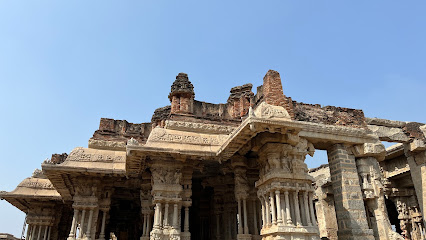
Shri Lakshmi Narasimha Temple
Explore the rich history and divine serenity of Shri Lakshmi Narasimha Temple in Hampi, a UNESCO World Heritage site.
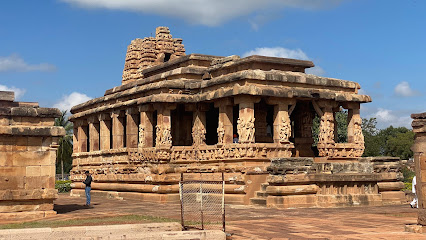
Mathanga Hill
Explore the breathtaking beauty and historical significance of Mathanga Hill in Hampi, where adventure meets ancient culture amidst stunning landscapes.
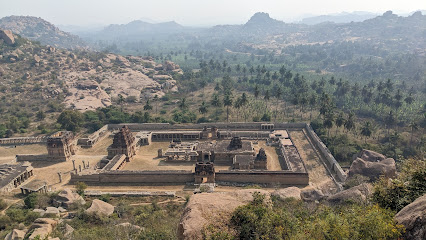
Shri Achyutaraaya Swamy Temple
Explore the stunning Shri Achyutaraaya Swamy Temple in Hampi, a treasure of Dravidian architecture and a serene spiritual retreat amidst ancient ruins.
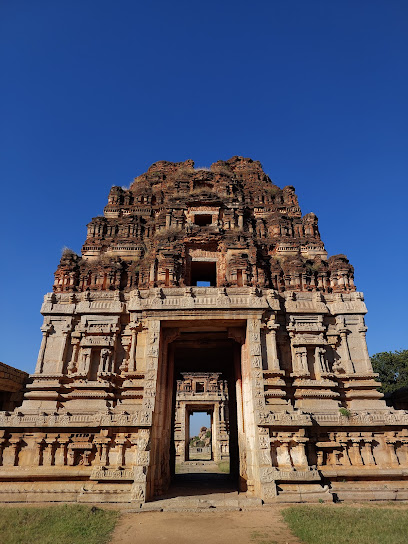
Sunrise Sunset Point - Matanga Betta
Discover breathtaking sunrises and sunsets at the enchanting Sunrise Sunset Point in Hampi, Karnataka, a must-visit scenic spot for nature lovers.
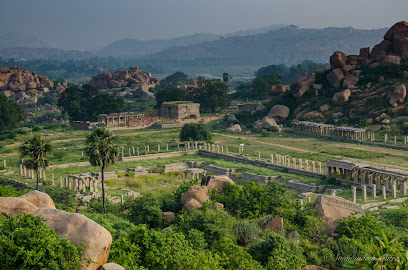
Zanana Enclosure
Discover the Zanana Enclosure in Hampi, a historical landmark showcasing the architectural brilliance of the Vijayanagara Empire amidst serene gardens.
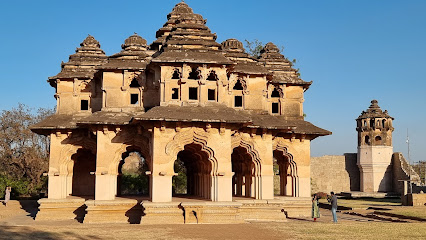
Krishna Sante Street
Discover the lively Krishna Sante Street in Hampi, a vibrant marketplace offering street food, crafts, and a rich cultural experience in Karnataka.
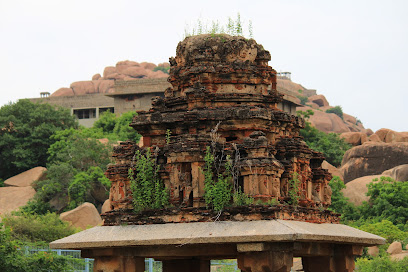
Ferry Point Hampi
Explore the serene waters of the Tungabhadra River at Ferry Point Hampi, your gateway to the ancient wonders of this UNESCO World Heritage site.
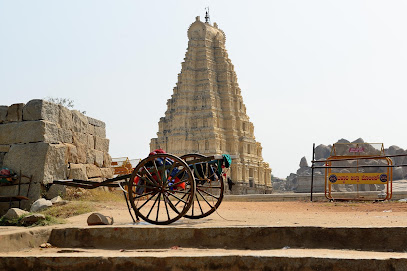
Tungabhadraa Ghats
Discover the beauty and history of Tungabhadraa Ghats in Hampi, a perfect blend of nature and ancient architecture.
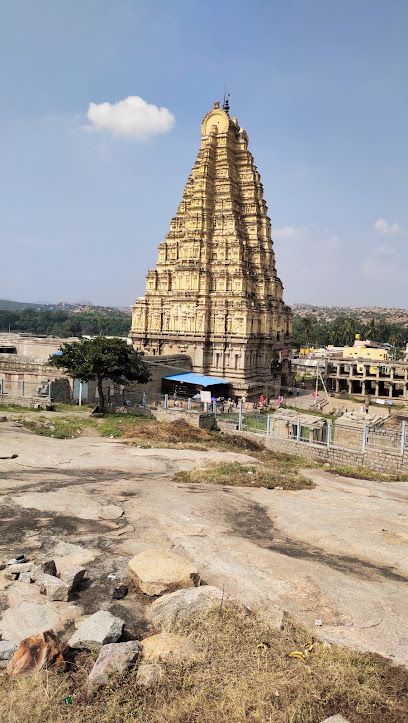
Bhima Gateway Hampi
Experience the grandeur of Bhima Gateway in Hampi, a stunning entrance to the architectural wonders of the Vijayanagara Empire and a UNESCO World Heritage Site.
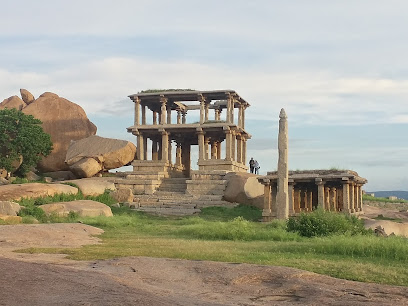
Manmatha Tank
Experience the tranquil allure of Manmatha Tank, a historical landmark in Hampi, adjacent to the iconic Virupaksha Temple, steeped in cultural significance.
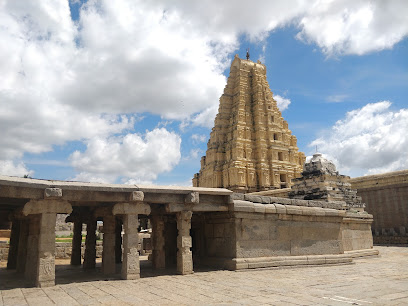
Hampi Fort
Explore the majestic Hampi Fort, a UNESCO World Heritage Site, and marvel at the stunning architecture and rich history of India's ancient empire.
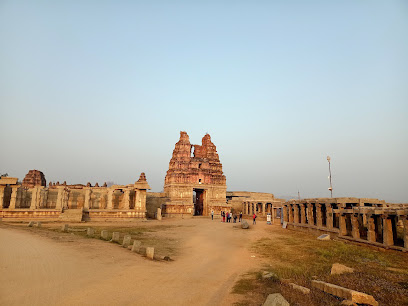
Kanchikal Mantapa
Discover the exquisite artistry and tranquil ambiance of Kanchikal Mantapa, an architectural treasure nestled in the heart of historic Hampi.
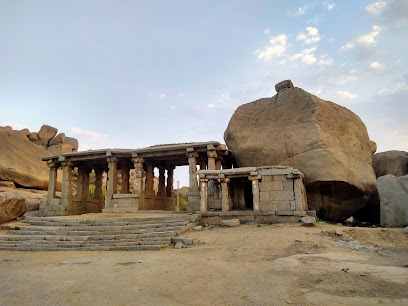
Elephant Rock
Experience the stunning views and unique formations at Elephant Rock in Hampi, a natural wonder that captivates every traveler.
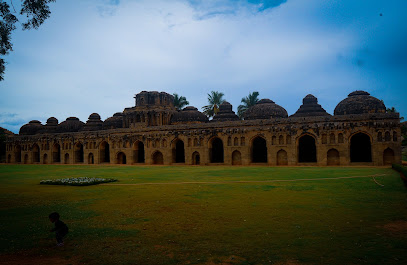
Ancient Mantapa
Explore the Ancient Mantapa in Hampi, a stunning historical landmark showcasing intricate carvings and the rich heritage of the Vijayanagara Empire.
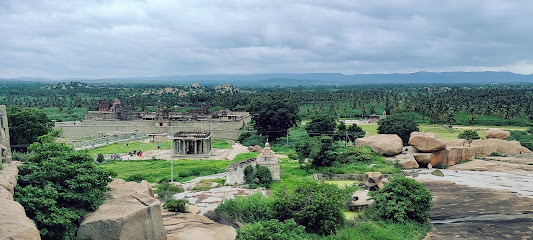
Unmissable attractions to see
Sanapur Lake
Discover Sanapur Lake: A serene escape near Hampi with coracle rides and stunning boulder landscapes. Perfect for relaxation and nature lovers.
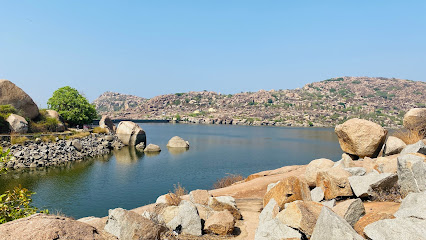
Shri Malyavanta Raghunatha Temple
Discover the mythological Shri Malyavanta Raghunatha Temple in Hampi, offering stunning views and a serene spiritual experience.
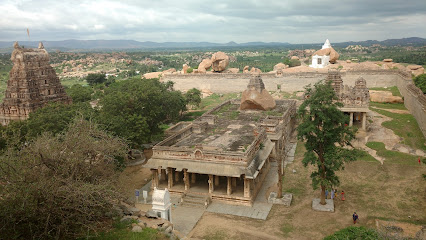
Sunset point - Hippie Island
Experience breathtaking sunsets and panoramic views from Sunset Point on Hippie Island, Hampi – a haven for nature lovers and photographers.
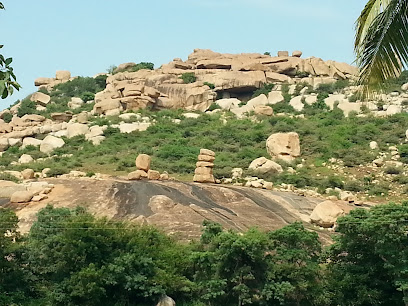
Sunrise Sunset Point - Matanga Betta
Hike to Hampi's highest point for unforgettable sunrise and sunset views. Explore ancient ruins and panoramic landscapes from Matanga Hill.
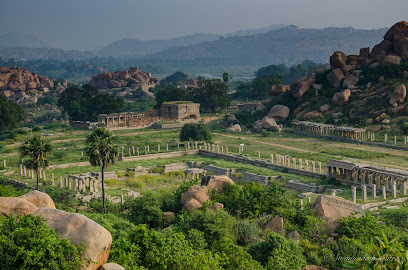
Nandi
Behold the colossal Nandi Bull in Hampi, a symbol of devotion carved from a single stone, guarding the ancient Virupaksha Temple.
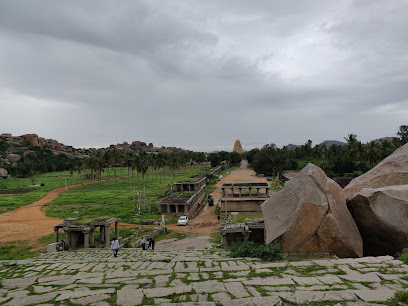
Yantrodharaka Hanuman Temple, Hampi
Discover a unique meditative Hanuman statue encased in a yantra at this ancient Hampi temple, rich in legend and Vijayanagara history.
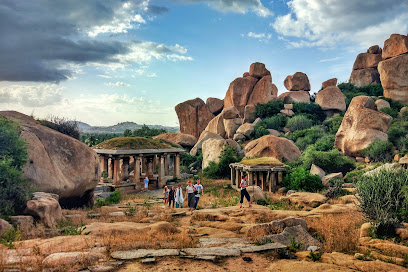
Chakra Tirtha
Discover Chakra Tirtha in Hampi: a sacred site with swirling waters, ancient carvings, and mythical legends on the banks of the Tungabhadra River.
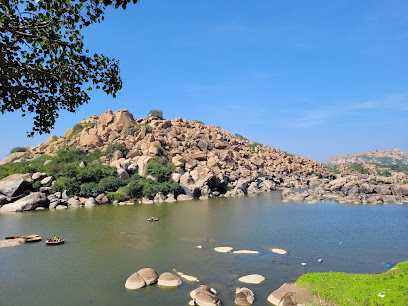
Jilan Auto Rickshaw Driver Service and sight seeing
Discover Hampi's ancient wonders with a local auto rickshaw tour: personalized, flexible, and unforgettable!
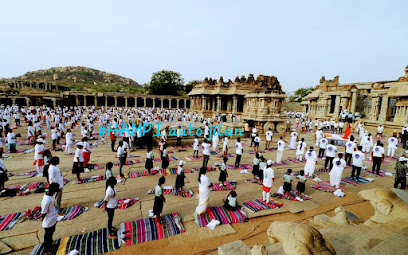
Krishna Sante Street
Explore Krishna Sante Street in Hampi: a historical chariot street and ancient marketplace frozen in time, revealing Hampi's rich cultural heritage.
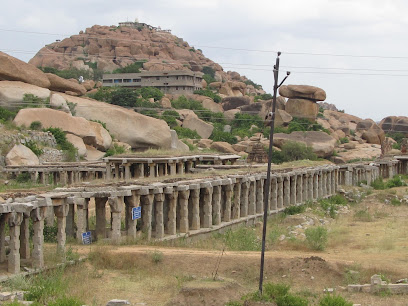
Watch Tower
Explore Hampi's Watch Tower: panoramic views, historical insights, and a glimpse into the Vijayanagara Empire's defenses.
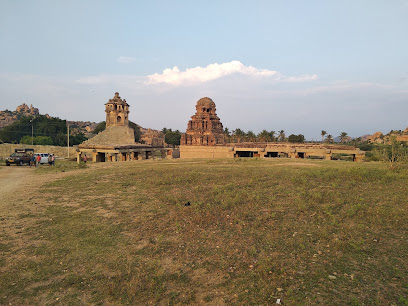
Hampi Shri Varahaswami Gudi
Explore the ancient artistry of Hampi's Varahaswami Gudi, a tribute to the Vijayanagara Empire and Lord Varaha.
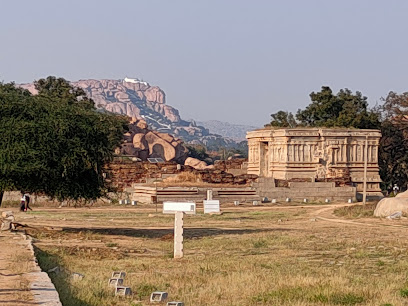
Shri Ranganatha Swami Gudi
Discover serenity at Hampi's Shri Ranganatha Swami Gudi, an ancient temple showcasing exquisite architecture and spiritual heritage.
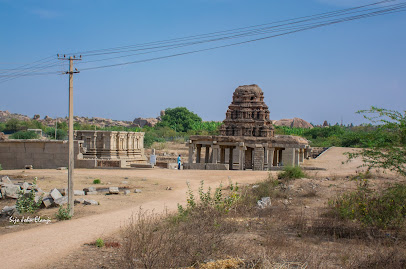
Shri Ranganatha Swami Temple
Discover the spiritual and architectural beauty of Shri Ranganatha Swami Temple, a hidden gem in Hampi's captivating landscape.
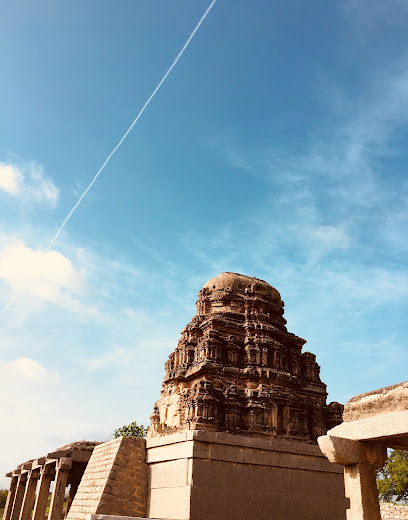
Palace of Vira Harihara
Explore the foundation of a royal residence in Hampi's Royal Enclosure, imagining the grandeur of the Vijayanagara Empire.
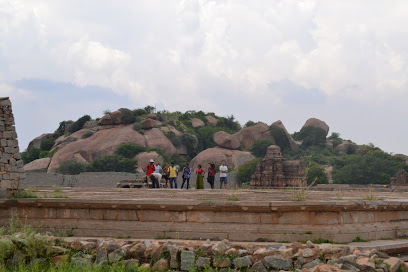
Sri Vishnupada Gudi
Discover the sacred Sri Vishnupada Gudi in Hampi, a serene temple enshrining the divine footprints of Lord Vishnu.
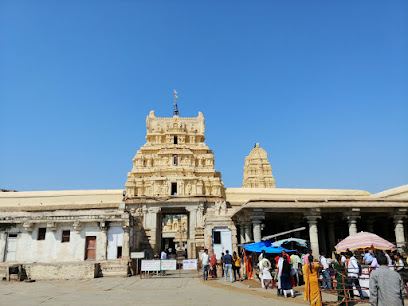
Essential places to dine
Hampi Paradise Restaurant
Experience authentic Indian flavors at Hampi Paradise Restaurant, your go-to spot for delicious breakfasts and fast food in the heart of Hampi.
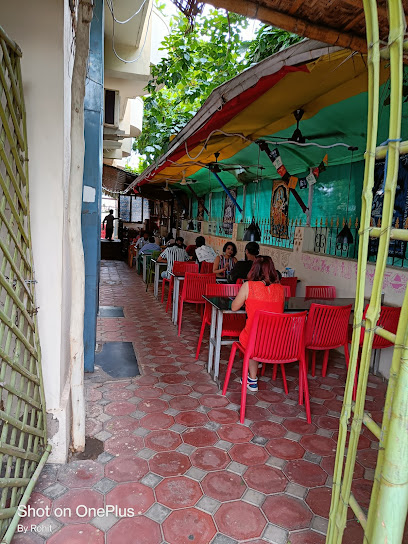
Taste of Brahmins
Discover authentic South Indian breakfast delights at Taste of Brahmins in historic Hampi.
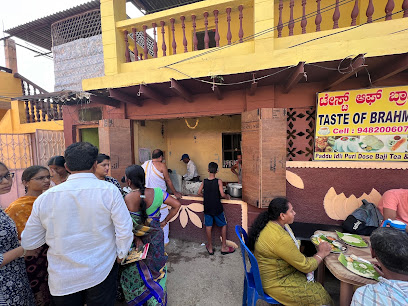
Gopi Guesthouse And Roof Restaurant
Discover diverse cuisines at Gopi Guesthouse & Roof Restaurant in Hampi - a culinary gem near historic temples.
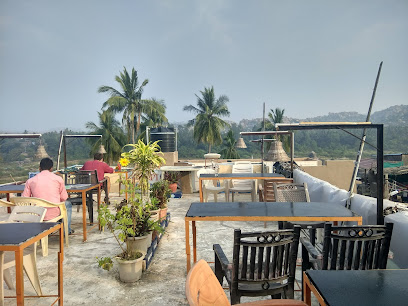
Chillout Bamboo Restaurant
Discover Chillout Bamboo Restaurant in Hampi: A delightful dining spot offering diverse flavors in an enchanting bamboo setting.
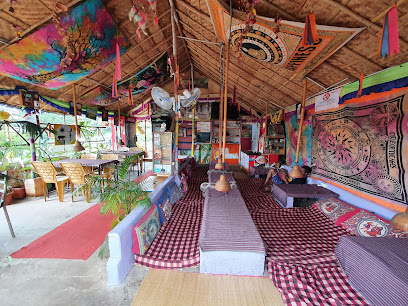
OLD CHILL OUT Ganesh RESTAURANT
Experience authentic vegetarian cuisine in the heart of Hampi at Old Chill Out Ganesh Restaurant – where taste meets tradition.
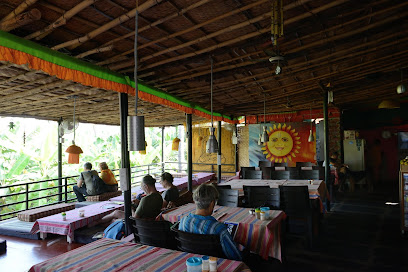
ITALIAN cafe hampi
Indulge in authentic Italian flavors at Hampi's charming cafe; perfect for families seeking delicious meals amidst historical beauty.
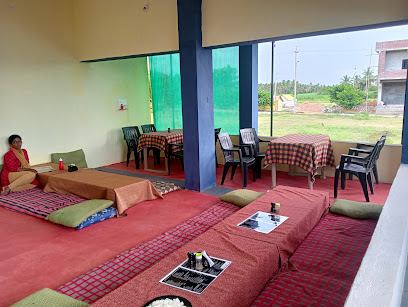
Funky Monkey restaurant
Experience vibrant flavors at Funky Monkey Restaurant near Virupaksha Temple in Hampi – where every dish tells a story.
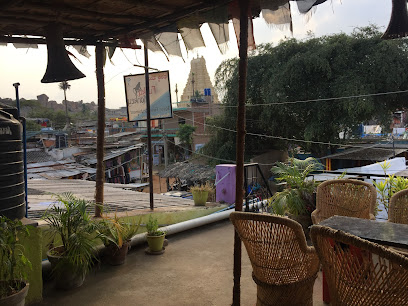
Shambhu Dosa Center
Discover authentic South Indian flavors at Shambhu Dosa Center, where every dosa tells a story amidst the historical charm of Hampi.
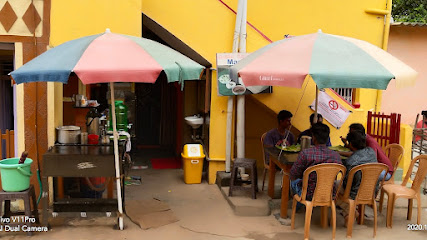
Panchamukhi Restaurant Hampi
Discover authentic South Indian flavors at Panchamukhi Restaurant in Hampi - where every meal is a celebration of taste.
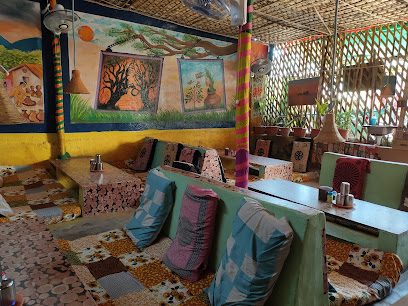
Ravi’s Rose Restaurant
Discover authentic Indian cuisine at Ravi’s Rose Restaurant in Hampi - a culinary delight surrounded by rich heritage.
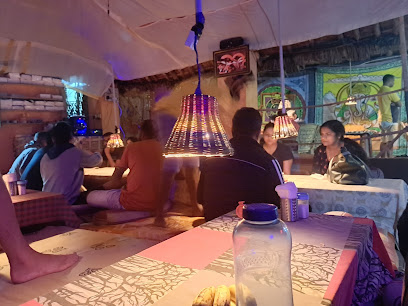
Shiva Cafe & Megha Guest House
Experience authentic Indian cuisine and comfortable lodging at Shiva Cafe & Megha Guest House in historic Hampi.
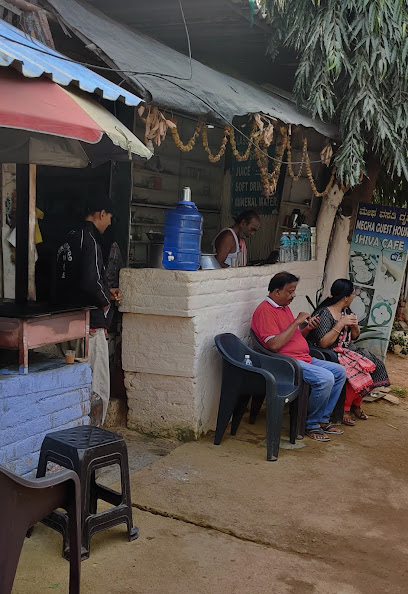
Prince Indian food court Junction . Devotees Stay, Hampi, Karnataka.
Experience authentic Indian cuisine at Prince Indian Food Court in Hampi - where flavor meets tradition in a vibrant atmosphere.
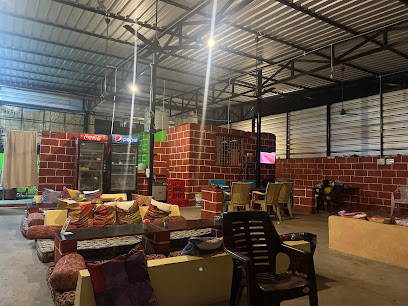
Appu Tiffin Center Hampi
Experience the essence of South Indian cuisine at Appu Tiffin Center in Hampi - where tradition meets flavor.
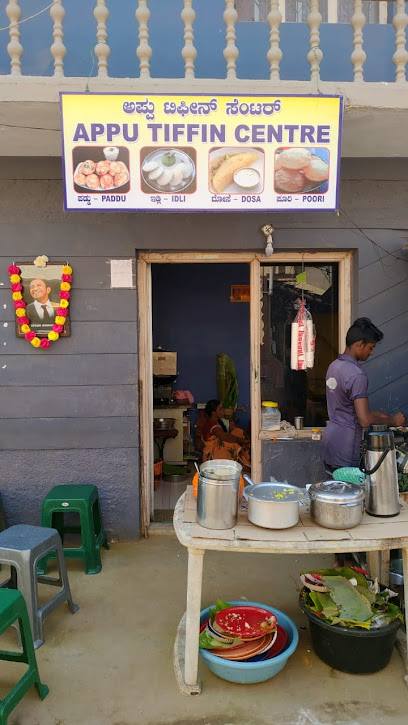
Sri Venkateshwara Hotel
Discover authentic Indian cuisine at Sri Venkateshwara Hotel in Hampi - where tradition meets flavor in a cozy atmosphere.
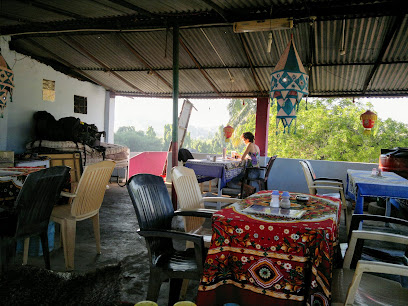
Dream catcher restaurant
Experience authentic Karnataka cuisine at Dream Catcher Restaurant in Hampi, where every dish tells a story amidst stunning views.
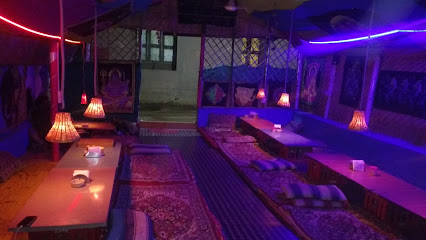
Markets, malls and hidden boutiques
RAJA Massage
Discover ultimate relaxation at RAJA Massage in Hampi, offering a range of soothing treatments in a tranquil setting.
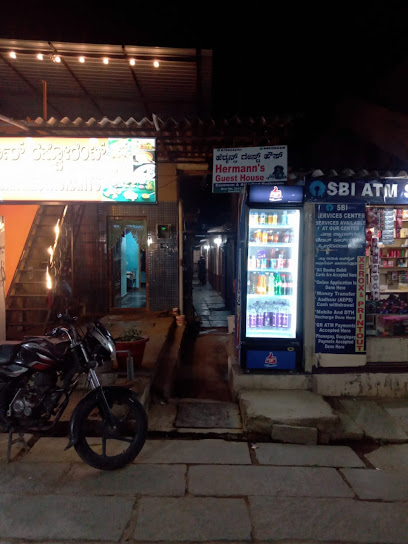
ART HOUSE (Hampi Art Studio , Gallery & Art Residency)
Explore Hampi's vibrant art scene at Art House - a creative haven for art lovers, featuring local artworks and engaging workshops.
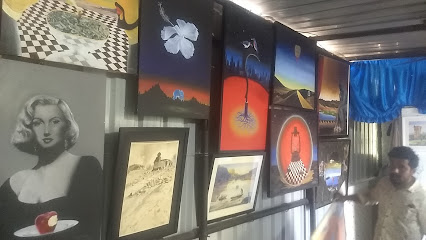
Akashartgallery&bookstall
Explore the literary treasures and local art at Akash Art Gallery & Book Stall in Hampi, a perfect retreat for book lovers and culture enthusiasts.
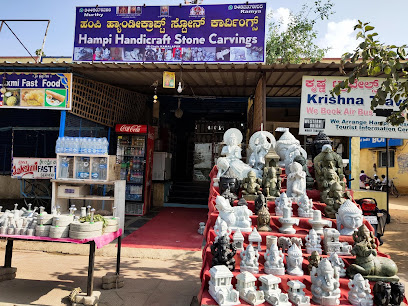
The Incense Museum
Explore the aromatic heritage of India at The Incense Museum in Hampi, where the art of fragrance comes alive through history and hands-on experiences.
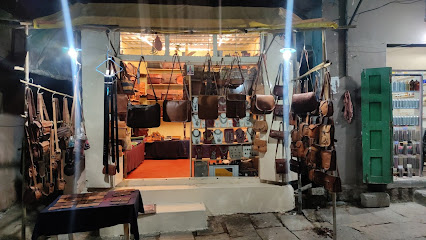
CRAFT'S BAZAR HAMPI
Explore Craft's Bazar Hampi for unique handcrafted treasures that showcase the rich cultural heritage and artistry of Karnataka.
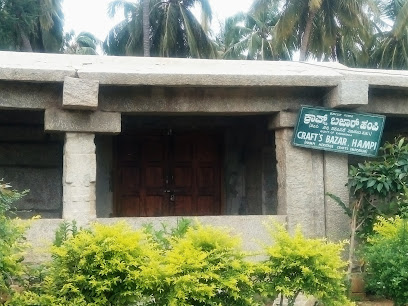
Nepal Art House
Explore the vibrant crafts and artistic heritage at Nepal Art House in Hampi, a must-visit for art lovers and souvenir hunters.
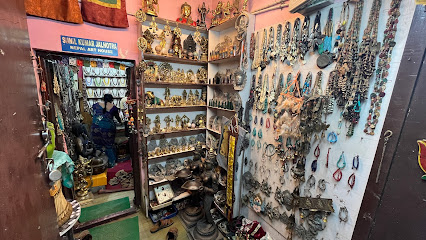
Vikram collections
Discover the essence of Indian culture with exquisite traditional attire at Vikram Collections in Hampi, Karnataka.
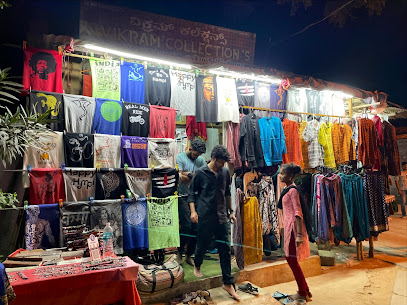
Nice readymade clothes shop
Explore a vibrant clothing store in Hampi offering unique ready-made garments that reflect the rich heritage and craftsmanship of Karnataka.
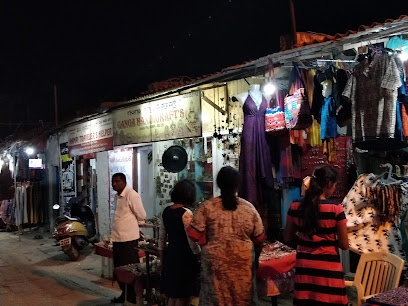
SUMA GENARAL STORE
Explore the vibrant local culture at SUMA General Store in Hampi, where everyday essentials meet unique souvenirs and local charm.
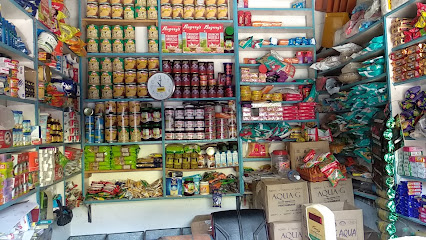
Preetham Cloths Shop Hampi
Explore authentic Indian textiles and vibrant fashion at Preetham Cloths Shop in Hampi's bustling Janatha Plat Bazaar.
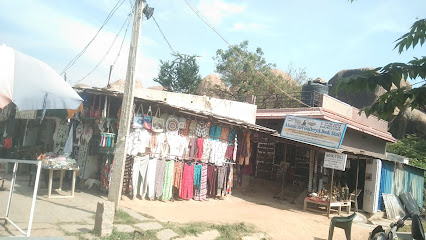
Kamalabai Cloths shop
Explore Kamalabai Cloths Shop in Hampi for authentic men's clothing and immerse yourself in the rich traditions of Indian fashion.
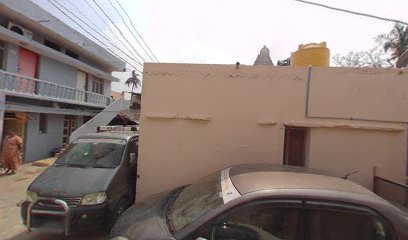
The lake
Discover the serene beauty of The Lake in Hampi, a perfect blend of nature and history in Karnataka's ancient landscape.
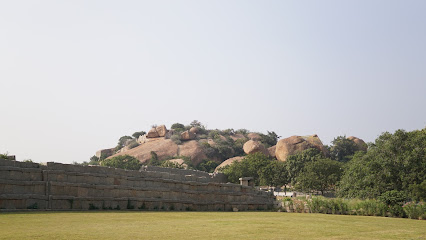
Kaveri Shop
Explore Kaveri Shop in Hampi for unique souvenirs and handcrafted treasures that celebrate the rich culture of Karnataka.

AZHAR HANDICRAFTS
Explore Azhar Handicrafts in Hampi for unique local treasures that reflect the rich cultural heritage of Karnataka.

Venkatesh Naik Store
Explore Venkatesh Naik Store in Hampi for a unique blend of traditional and modern men's clothing, capturing the essence of local culture.

Essential bars & hidden hideouts
MANGO TREE RESTAURANT
Experience the vibrant flavors of Karnataka at Mango Tree Restaurant, a delightful vegetarian haven in Kamalapur, perfect for all food enthusiasts.
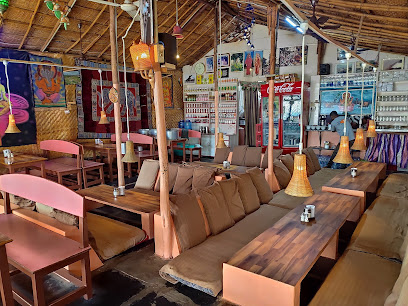
Laughing Buddha Restaurant Hampi
Discover the vibrant flavors of Israeli, Italian, and Mediterranean cuisine at Laughing Buddha Restaurant in Hampi, where every meal is a joyful experience.
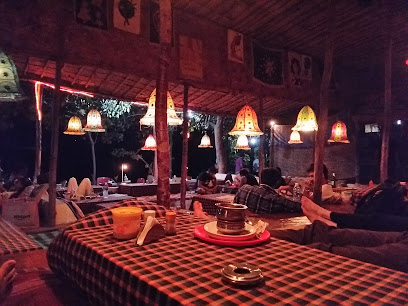
Wanderlust Hampi
Experience the best of Indian cuisine at Wanderlust Hampi, where every meal is a celebration of flavors in a stunning setting.
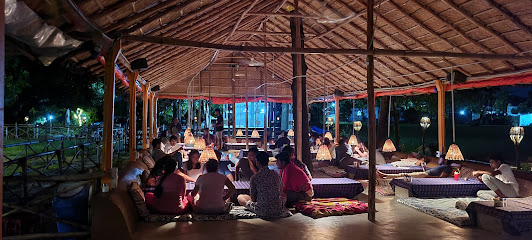
Taste of Brahmins
Experience the authentic flavors of Hampi at Taste of Brahmins, where every breakfast is a celebration of local cuisine and culture.
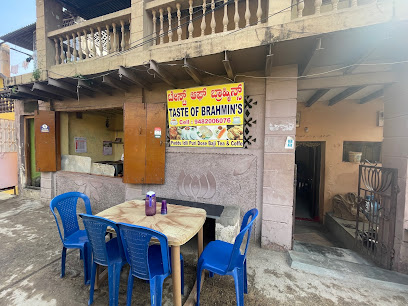
Gopi Guesthouse And Roof Restaurant
Experience the rich flavors of South Asian, Italian, Japanese, and Tibetan cuisines at Gopi Guesthouse And Roof Restaurant in the heart of Hampi, Karnataka.
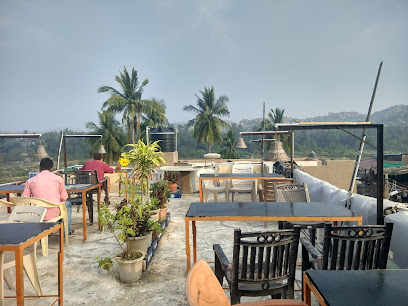
Island Vibes Hampi
Discover the perfect blend of traditional cuisine and serene nature at Island Vibes Hampi, a unique restaurant and guest house in Karnataka.
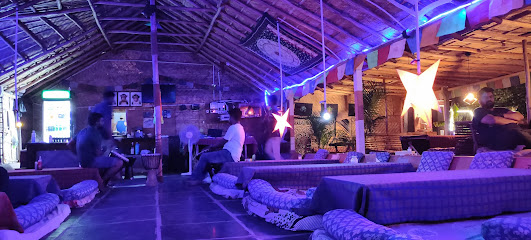
Chillout Bamboo Restaurant
Experience the serene ambiance and delicious offerings at Chillout Bamboo Restaurant, your go-to dining spot in historic Hampi.
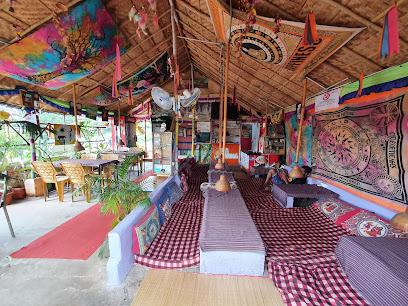
OLD CHILL OUT Ganesh RESTAURANT
Savor the essence of Karnataka with delicious vegetarian dishes at OLD CHILL OUT Ganesh RESTAURANT in Hampi.
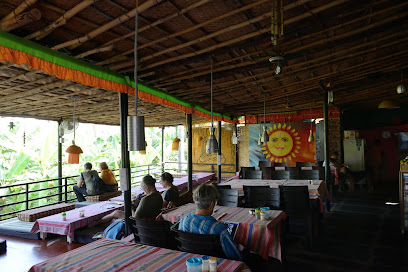
Funky Monkey restaurant
Experience the vibrant flavors of India at Funky Monkey Restaurant in Hampi, a culinary gem near the historic Virupaksha Temple.
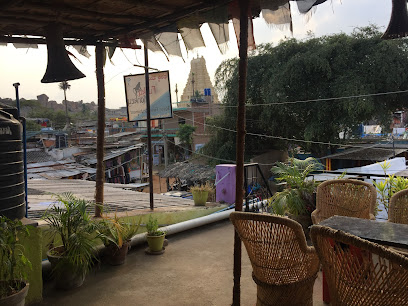
Monkey Paradise cafe
Experience the charm of Monkey Paradise Cafe in Sanapur, Karnataka, where delicious local cuisine meets a serene natural setting.
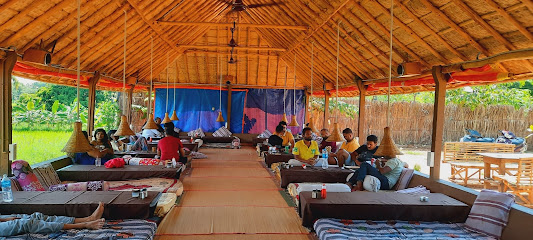
Panchamukhi Restaurant Hampi
Discover the authentic taste of South India at Panchamukhi Restaurant, a culinary gem located in the picturesque Hampi.
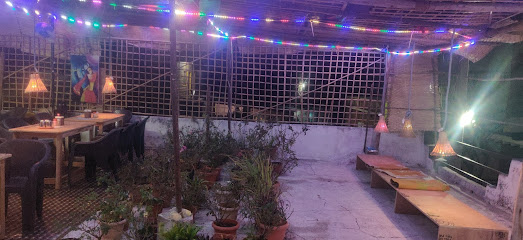
Ravi’s Rose Restaurant
Discover the authentic flavors of Hampi at Ravi's Rose Restaurant, a culinary haven for tourists seeking a memorable dining experience.
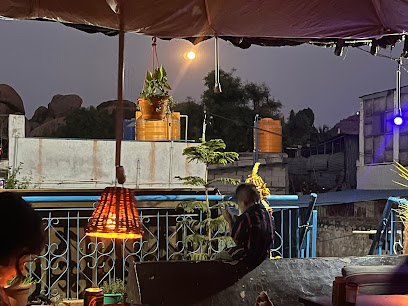
Gopi Island
Gopi Island: A tranquil haven in Hampi offering stunning landscapes, rich culture, and delightful local cuisine for every traveler.
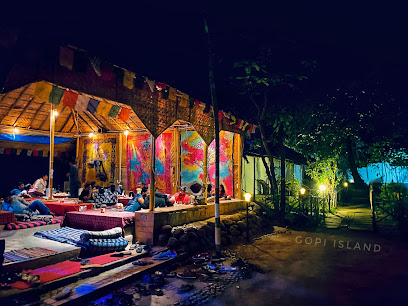
Hampi Roof Restaurant
Experience the flavors of Hampi at Hampi Roof Restaurant, where local cuisine meets stunning views of ancient ruins.
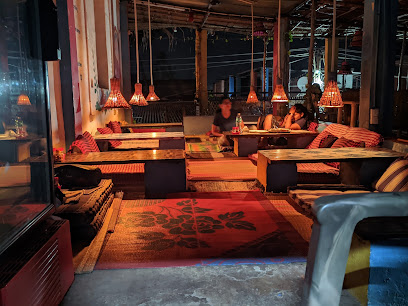
Shiva Cafe & Megha Guest House
Discover the charm of Hampi at Shiva Cafe & Megha Guest House, where delicious Indian breakfast and cozy accommodations await you.
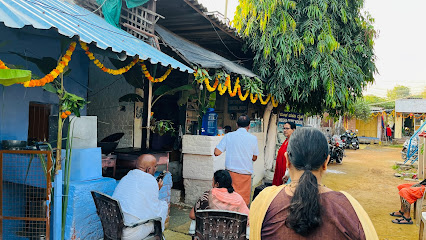
Local Phrases about Hampi
-
- Helloಹಲೋ
[halo] - Goodbyeವಿದಾಯ
[vidaaya] - Yesಹೌದು
[haudu] - Noಇಲ್ಲ
[illa] - Please/You're welcomeದಯವಿಟ್ಟು
[dayavittu] - Thank youಧನ್ಯವಾದಗಳು
[dhanyavaadagalu] - Excuse me/Sorryಕ್ಷಮಿಸಿ
[kshamisi] - How are you?ನೀವು ಹೇಗಿದ್ದೀರಾ?
[neevu hegiddira?] - Fine. And you?ಚೆನ್ನಾಗಿದೆ. ನೀವು?
[chennaagide. neevu?] - Do you speak English?ನೀವು ಇಂಗ್ಲೀಷ್ ಮಾತನಾಡುತ್ತೀರಾ?
[neevu English maatanaduttira?] - I don't understandನನಗೆ ಅರ್ಥವಾಗುತ್ತಿಲ್ಲ
[nanage arthavaagutilla]
- Helloಹಲೋ
-
- I'd like to see the menu, pleaseದಯವಿಟ್ಟು ಮೆನು ನೋಡಲು ಇಚ್ಛಿಸುವೆ
[dayavittu menu nodalu icchisuve] - I don't eat meatನಾನು ಮಾಂಸವನ್ನು ತಿನ್ನುವುದಿಲ್ಲ
[naanu maamsavannu tinnuvudilla] - Cheers!ಚಿಯರ್ಸ್!
[chiyars!] - I would like to pay, pleaseದಯವಿಟ್ಟು ನಾನು ಪಾವತಿ ಮಾಡಲು ಇಚ್ಛಿಸುವೆ
[dayavittu naanu paavati maadal icchisuve]
- I'd like to see the menu, pleaseದಯವಿಟ್ಟು ಮೆನು ನೋಡಲು ಇಚ್ಛಿಸುವೆ
-
- Help!ಸಹಾಯ
[sahaaya] - Go away!ಹೋಗಿಹೋಗು
[hogihogu] - Call the Police!ಪೊಲಿಸ್ ಕರೆ
[polis kare] - Call a doctor!ಡಾಕ್ಟರ್ ಕರೆ
[doctor kare] - I'm lostನಾನು ಹರಿತವಾಗಿದ್ದೇನೆ
[naanu haritavaagidene] - I'm illನನಗೆ ಅಸ್ವಸ್ಥತೆಯಾಗಿದೆ
[nanage asvasthatheyagide]
- Help!ಸಹಾಯ
-
- I'd like to buy...ನಾನು ಖರೀದಿಸಲು ಬಯಸುವೆ
[naanu khareedisalu bayasuve] - I'm just lookingನಾನು ನೋಡುತ್ತಿದ್ದೇನೆ
[naanu noduttiddene] - How much is it?ಇದು ಎಷ್ಟು ಖರೀದಿಸಲು?
[idu eshtu khareedisalu?] - That's too expensiveಅದು ತುಂಬಾ ಹೆಚ್ಚು ಧನವಾಗಿದೆ
[adu tumba hecchu dhanavaagide] - Can you lower the price?ನೀವು ಬೆಲೆಯನ್ನು ಕಡಿಮೆ ಮಾಡಬಹುದೇ?
[neevu beleyanu kadhime maadabahude?]
- I'd like to buy...ನಾನು ಖರೀದಿಸಲು ಬಯಸುವೆ
-
- What time is it?ಏನು ಸಮಯ?
[enu samaya?] - It's one o'clockಒಂದು ಗಂಟೆಯಾಗಿದೆ
[ondu ganteyagide] - Half past (10)ಹತ್ತು ಗಂಟೆಗೆ ಅರ್ಧ
[hattu ganteg ardh] - Morningಬೆಳಗ್ಗೆ
[belagge] - Afternoonಮಧ್ಯಾಹ್ನ
[madhyahna] - Eveningಸಂಜೆ
[sanje] - Yesterdayನಿನ್ನೆ
[ninne] - Todayಇಂದು
[indu] - Tomorrowನಾಳೆ
[naale] - 1ಒಂದು
[ondu] - 2ಎರಡು
[eradu] - 3ಮೂರು
[mooru] - 4ನಾಲ್ಕು
[naalku] - 5ಐದು
[aidu] - 6ಆರು
[aaru] - 7ಏಳು
[elu] - 8ಎಂಟು
[entu] - 9ಒಂಬತ್ತು
[ombattu] - 10ಹತ್ತು
[hattu]
- What time is it?ಏನು ಸಮಯ?
-
- Where's a/the...?...ಎಲ್ಲಿದೆ?
[...ellide?] - What's the address?ವಿಳಾಸವೇನು?
[vilaasavenu?] - Can you show me (on the map)?ನೀವು ನನಗೆ ತೋರಿಸಬಹುದೇ?
[neevu nanage torisabahude?] - When's the next (bus)?ಮುಂದಿನ (ಬಸ್) ಏಕೆ?
[mundina (bas) eke?] - A ticket (to ....)ಒಂದು ಟಿಕೆಟ್ (...ಗೆ)
[ondu ticket (...ge)]
- Where's a/the...?...ಎಲ್ಲಿದೆ?
History of Hampi
-
Founded in 1336 by Harihara I and Bukka Raya I, the Vijayanagara Empire rose to prominence under the Sangama Dynasty. Hampi, as its capital, became a critical center of culture, commerce, and administration, rapidly expanding its influence across South India.
-
The reign of Krishna Deva Raya (1509-1529) marked the zenith of the Vijayanagara Empire. Hampi flourished with grand temples, bustling markets, and architectural marvels. The city was a melting pot of diverse cultures, languages, and traditions, reflecting the empire's vast reach and prosperity.
-
Hampi is renowned for its stunning architecture and intricate sculptures. The Virupaksha Temple, Vittala Temple with its iconic stone chariot, and the royal enclosures like the Lotus Mahal and Elephant Stables showcase the artistic and engineering prowess of the Vijayanagara period.
-
In 1565, the Battle of Talikota marked a significant turning point for Hampi. The combined forces of the Deccan Sultanates defeated the Vijayanagara Empire, leading to widespread destruction. Hampi was ransacked, and its grandeur faded into ruins, marking the decline of one of South India's greatest empires.
-
Hampi was not only a political hub but also a spiritual and cultural center. The city housed numerous temples dedicated to various deities, showcasing the religious tolerance and diversity of the era. Annual festivals like the Hampi Utsav continue to celebrate this rich heritage.
-
The ruins of Hampi were largely forgotten until the 19th century when British archaeologists and historians began to document and study the site. Extensive archaeological efforts have since unearthed many of its treasures, leading to its designation as a UNESCO World Heritage Site in 1986.
-
Today, Hampi is a major tourist destination, attracting visitors from around the world. Its landscapes, dotted with boulders and ancient ruins, offer a unique glimpse into the grandeur of the Vijayanagara Empire. Efforts are ongoing to preserve and restore its historical monuments, ensuring that the legacy of Hampi endures.
Hampi Essentials
-
Hampi is located in the state of Karnataka, India. The nearest airport is Hubli Airport, approximately 144 kilometers away, with limited domestic flights. Alternatively, the Kempegowda International Airport in Bangalore, around 350 kilometers away, offers more flight options. From either airport, you can hire a taxi or take a train to Hospet, the closest railway station to Hampi, which is just 13 kilometers away. Hospet is well-connected to major cities like Bangalore, Hyderabad, and Goa by rail. From Hospet, you can take a local bus or hire an auto-rickshaw to reach Hampi.
-
Hampi is a small area, and most of its attractions are within walking distance. For exploring the ruins and surrounding areas, you can rent bicycles or mopeds from local shops. Auto-rickshaws are also available for hire and are a convenient way to get around. For longer journeys, you can book taxis. Public buses connect Hampi with Hospet and other nearby towns, but they can be infrequent. Renting a car is an option, but be prepared for narrow and sometimes poorly maintained roads.
-
The official currency in India is the Indian Rupee (INR). Credit cards are accepted in some hotels, restaurants, and larger shops, but it is advisable to carry cash, especially for smaller establishments and local markets. ATMs are available in Hospet and some parts of Hampi, but it is wise to withdraw sufficient cash before arriving in Hampi to ensure you have enough funds for your stay.
-
Hampi is generally a safe destination for tourists. However, it is important to take standard precautions. Avoid isolated areas after dark and keep an eye on your belongings in crowded places. While Hampi does not have specific high-crime areas targeting tourists, it is always best to stay vigilant. Be cautious when dealing with touts offering services or goods, and confirm prices beforehand to avoid scams.
-
In case of emergency, dial 112 for immediate assistance. The local police station and medical facilities are available in Hospet. It is recommended to have travel insurance that covers medical emergencies. For minor health issues, there are pharmacies in Hospet where you can purchase over-the-counter medications. Carry a basic first aid kit and any necessary prescription medications with you.
-
Fashion: Do dress modestly, especially when visiting religious sites. Avoid wearing revealing clothing. Religion: Do respect local customs and traditions. Always remove your shoes when entering temples. Public Transport: Do be respectful and give up your seat to elderly passengers. Don't eat or drink on public transport. Greetings: Do greet people with a 'Namaste' or a handshake. Eating & Drinking: Do try local delicacies and accept food offerings graciously. Don't refuse hospitality, as it is considered impolite.
-
To experience Hampi like a local, visit the local markets where you can buy fresh produce and traditional goods. Engage with locals, as they are often friendly and willing to share stories about the area's history and culture. Don't miss the sunrise and sunset views from the Matanga Hill and Hemakuta Hill. For a unique experience, take a coracle ride on the Tungabhadra River. Participate in local festivals and events to get a deeper understanding of the local culture.
Trending Landmarks in Hampi
-
Group of Monuments at Hampi
-
Shri Lakshmi Narasimha Temple
-
Mathanga Hill
-
Shri Achyutaraaya Swamy Temple
-
Sunrise Sunset Point - Matanga Betta
-
Zanana Enclosure
-
Krishna Sante Street
-
Ferry Point Hampi
-
Tungabhadraa Ghats
-
Bhima Gateway Hampi
-
Manmatha Tank
-
Hampi Fort
-
Kanchikal Mantapa
-
Elephant Rock
-
Ancient Mantapa
Nearby Cities to Hampi
-
Things To Do in Panaji
-
Things To Do in Bengaluru
-
Things To Do in Mysore
-
Things To Do in Pune
-
Things To Do in Kozhikode
-
Things To Do in Chennai
-
Things To Do in Coimbatore
-
Things To Do in Aurangabad
-
Things To Do in Puducherry
-
Things To Do in Pondicherry
-
Things To Do in Mumbai
-
Things To Do in Nashik
-
Things To Do in Kochi
-
Things To Do in Madurai
-
Things To Do in Nagpur













